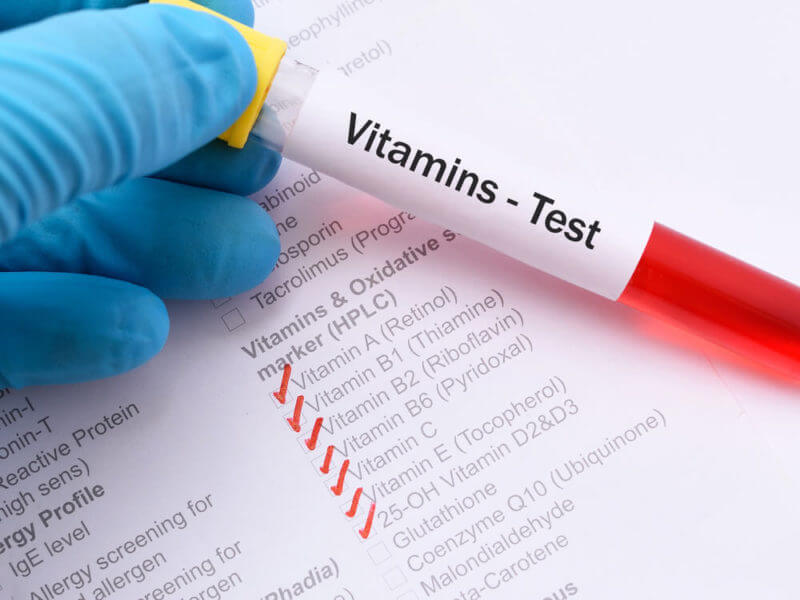According to the CDC, around 10% of Americans have some type of nutritional deficiency. This means that there are certain vitamins and/or minerals that they are not getting enough of. Since vitamins and minerals are not produced by the body and must be entirely supplied by diet, not having enough of a certain vitamin or mineral can create a number of health problems.
When the body is lacking nutrients, there are a few key symptoms to look out for. These include:
- Brittle hair and nails
- Fatigue
- Mouth ulcers (canker sores)
- Poor night vision
- Dandruff
- Scaly skin
- Hair loss
- Red or white bumps on the skin
- Restless leg syndrome
While you can potentially be deficient in any type of vitamin or mineral, there are some deficiencies that are more common than others. Here are some of the most common nutrient deficiencies:
Calcium
Calcium is an essential mineral used to maintain the bones and teeth through mineralizing them. It also keeps your heart, muscles, and nerves functioning. Excess calcium is stored in the bones and released when you are not receiving enough dietary calcium. When this happens, it makes your bones brittle and weak. Calcium can be found in boned fish, dairy products, and dark, leafy greens.
Iodine
Iodine is an essential mineral used by the body for normal thyroid function and the production of thyroid hormones. However, around ⅓ of the world’s population is deficient in iodine. Being deficient in iodine can cause an increased thyroid gland (goiter), weight gain, shortness of breath, and increased heart rate. In children, iodine deficiency can even lead to developmental abnormalities. Iodine is found in seaweed, fish, dairy products, and eggs.
Iron
Iron is an essential mineral used to transport oxygen to your cells, yet iron deficiency is extremely common. There are two types of dietary iron: heme iron, which is found in red meat and can easily be absorbed by the body, and non-heme iron, which is found in animal and plant foods, but is not easily absorbed. Being deficient in iron can eventually lead to anemia, which is a condition where the number of red blood cells decreases. Iron is found in red meat, beans, seeds, and dark, leafy greens.
Magnesium
Magnesium is an essential mineral used by the body to maintain bone and teeth structure, as well as to allow for certain enzyme reactions. Around half of the US population does not consume enough magnesium. Being deficient in magnesium can increase the risk of developing type 2 diabetes, metabolic syndrome, heart disease, and osteoporosis. Magnesium can be found in whole grains, nuts, dark chocolate, and dark, leafy greens.
Vitamin B6
Pyridoxine is a water-soluble vitamin used by the body for immune system support. However, because the body is unable to store B6, it must be consistently supplied by the diet to prevent deficiency. Individuals with kidney disease or medical conditions that prevent proper food absorption through the small intestine are at an increased risk of deficiency. Vitamin B6 is found in chickpeas, fish, potatoes, bananas, and chicken.
Vitamin B12
Cobalamin (B12) is a water-soluble vitamin that the body uses for blood formation, as well as brain and nerve function. B12 deficiency is extremely common in vegans and vegetarians since it is primarily found in animal foods such as shellfish, organ meat, meat, eggs, and milk products.
Vitamin D
Vitamin D is a fat-soluble vitamin that switches certain genes on and off in your cells. It is also essential for the absorption of calcium from the small intestine. Around 42% of the US population is deficient in vitamin D, however, the condition is more common in individuals who have darker skin. Vitamin D can be found in fatty fish and egg yolks. It may also need to be supplemented since it is hard to get enough vitamin D by diet alone.
At Washington Nutrition and Counseling Group, we offer 3 very comprehensive GOLD STANDARD research-based nutrition tests:
-
- METABOLISM TESTING to measure how efficiently you burn calories
- MICRONUTRIENT TESTING to assess your vitamin and mineral status
- DEXA SCAN to analyze your bone density and body fat
Contact us for more information about our services or to schedule an appointment.


